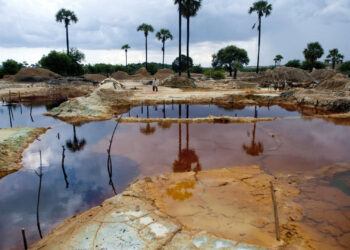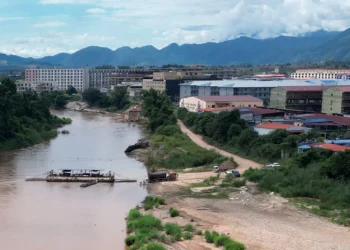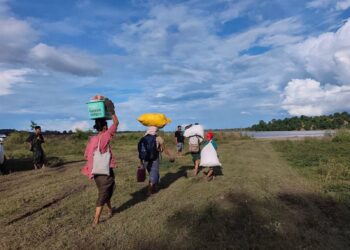EDITORIAL
Resistance forces have humiliated coup leader Min Aung Hlaing but victory may require a lengthy struggle, and society must stay resilient in the meantime.
We hoped it wouldn’t last this long.
The public response to the military’s illegal power grab two years ago was to try to stop Myanmar in its tracks and rob military rule of its foundations. As millions of people protested on the streets and the economy shuddered to a halt, government staff deserted their offices and soldiers and police officers began to defect to a growing resistance movement.
It seemed clear the military had overplayed its hand. If it had swallowed the humiliation of another electoral defeat and let the National League for Democracy govern for a second term, it could have retained its massive privileges and autonomy. The military had already withstood the NLD’s attempts to reduce its role in politics through amendments to the constitution. But now, the population was determined to end this role entirely.
When the protests failed to diminish, the military turned to the same brutal violence that had crushed previous democratic uprisings. But this uprising was different, and the military merely succeeded in starting a new war – one that, two years later, poses arguably the gravest threat it has faced in its history. Areas of central Myanmar such as Sagaing and Magway regions that hadn’t seen war since at least the 1950s erupted in revolt and became graveyards for legions of military foot soldiers.
Coup leader Min Aung Hlaing’s efforts to defeat the armed resistance have been largely inept. Campaigns of murder and arson have failed to root out armed groups whose popular support has allowed them to melt into the background and re-emerge when the regime’s soldiers depart. At the same time, efforts to neutralise longer-standing ethnic armed groups through “peace” negotiations have not stopped several powerful groups from providing crucial support to the broader democratic struggle.
The culmination of these failures is the decision yesterday of the military-dominated National Defence and Security Council to extend the national state of emergency for another six months, which will inevitably postpone the sham election planned for this year. This is profoundly embarrassing for Min Aung Hlaing, and a tribute to the tenacity of the Myanmar resistance in the absence of meaningful assistance from overseas.
The tortured justification for the extension makes a mockery of the 2008 Constitution, which the military casts as central to its legitimacy. The election is also a core objective for the junta. The countries that have so far engaged with it, such as China, Thailand, Russia and India, appear to be waiting on the successful conduct of an election – however bogus – before fully normalising diplomatic ties.
But for an institution as bloody-minded as the Myanmar military, failure is a long way from defeat, and the frustration of Min Aung Hlaing’s plans does not by itself bring Myanmar close to a democratic revolution.
The recent aerial bombings of high-level ethnic armed group targets in Kachin, Chin and Kayin states show the military’s capacity for violent destruction is far from being exhausted. And while resistance armies have successfully denied the regime control over large rural areas and have strained the military’s ability to fight on multiple fronts, many of them still lack the resources and cohesion to go beyond guerrilla tactics.
Meanwhile, the initial wave of military and police defections has slowed to a trickle. Although incompetent at governing the country, the military has shown a remarkable ability to hold itself together during times of crisis. It is arguably the key to its power, especially when set against a fractured opposition.
While a successful resistance movement needs to stay motivated, it is always a mistake to under-estimate an opponent. There is still all to play for in the struggle over Myanmar’s future; the more cynical members of the international community are wrong to assume that the military will inevitably prevail. On the other hand, overstating the junta’s fragility can not only warp strategy – it also does a disservice to the millions of Myanmar people who need to make the right decisions to endure a long crisis.
It is therefore vital to mix hope with sober realism, and to keep in mind the more everyday needs of the population, whose extraordinary resilience will be tested further in the year ahead.
Credit to – Frontier Myanmar
https://www.frontiermyanmar.net/en/myanmars-coup-two-years-on-but-a-long-fight-ahead/






